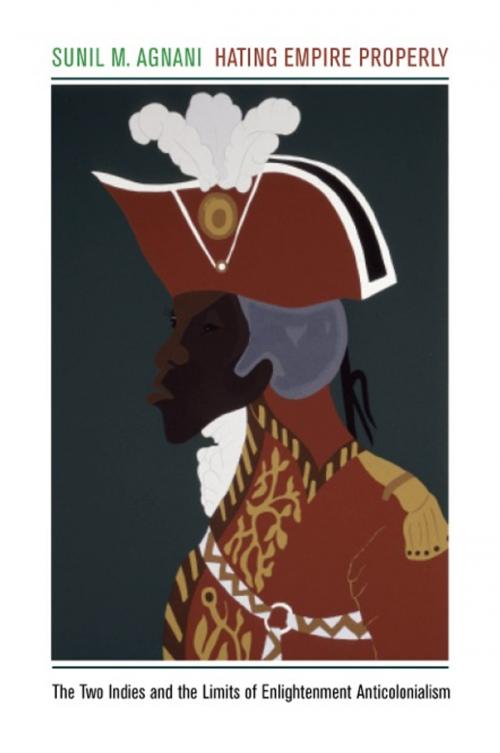Hating Empire Properly
The Two Indies and the Limits of Enlightenment Anticolonialism
Nonfiction, History, Americas, Caribbean & West Indies, Asian, Southeast Asia, World History| Author: | Sunil M. Agnani | ISBN: | 9780823252152 |
| Publisher: | Fordham University Press | Publication: | May 9, 2013 |
| Imprint: | American Literatures Initiative | Language: | English |
| Author: | Sunil M. Agnani |
| ISBN: | 9780823252152 |
| Publisher: | Fordham University Press |
| Publication: | May 9, 2013 |
| Imprint: | American Literatures Initiative |
| Language: | English |
In Hating Empire Properly, Sunil Agnani produces a novel attempt to think the eighteenth-century imagination of
the West and East Indies together, arguing that this is how contemporary thinkers Edmund Burke and Denis
Diderot actually viewed them. This concern with multiple geographical spaces is revealed to be a largely
unacknowledged part of the matrix of Enlightenment thought in which eighteenth-century European and American self-conceptions evolved. By focusing on colonial spaces of the Enlightenment, especially India and Haiti, he demonstrates how Burke's fearful view of the French Revolution—the defining event of modernity— as shaped by prior reflection on these other domains. Exploring with sympathy the angry outbursts against injustice in the writings of Diderot, he nonetheless challenges recent understandings of him as a univocal critic of empire by showing the persistence of a fantasy of consensual colonialism in his thought. By looking at the impasses and limits in the thought of both radical and conservative writers, Agnani asks what it means to critique empire “properly.” Drawing his method from Theodor Adorno’s quip that “one must have tradition in oneself, in order to hate it properly,” he proposes a critical inhabiting of dominant forms of reason as a way forward for the critique of both empire and Enlightenment.
Thus, this volume makes important contributions to political theory, history, literary studies, American studies, and postcolonial studies.
In Hating Empire Properly, Sunil Agnani produces a novel attempt to think the eighteenth-century imagination of
the West and East Indies together, arguing that this is how contemporary thinkers Edmund Burke and Denis
Diderot actually viewed them. This concern with multiple geographical spaces is revealed to be a largely
unacknowledged part of the matrix of Enlightenment thought in which eighteenth-century European and American self-conceptions evolved. By focusing on colonial spaces of the Enlightenment, especially India and Haiti, he demonstrates how Burke's fearful view of the French Revolution—the defining event of modernity— as shaped by prior reflection on these other domains. Exploring with sympathy the angry outbursts against injustice in the writings of Diderot, he nonetheless challenges recent understandings of him as a univocal critic of empire by showing the persistence of a fantasy of consensual colonialism in his thought. By looking at the impasses and limits in the thought of both radical and conservative writers, Agnani asks what it means to critique empire “properly.” Drawing his method from Theodor Adorno’s quip that “one must have tradition in oneself, in order to hate it properly,” he proposes a critical inhabiting of dominant forms of reason as a way forward for the critique of both empire and Enlightenment.
Thus, this volume makes important contributions to political theory, history, literary studies, American studies, and postcolonial studies.















